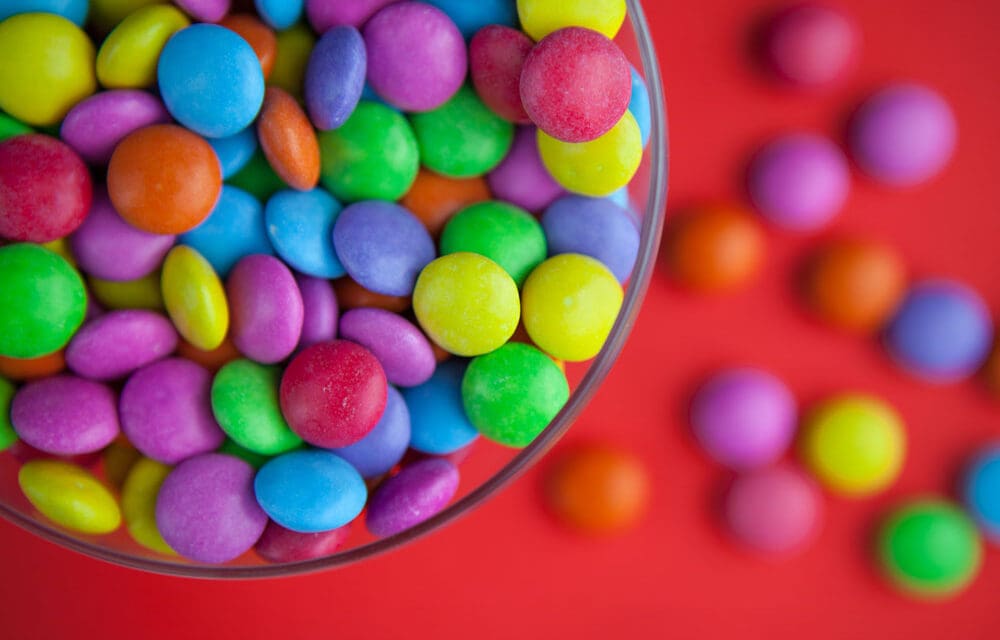You probably remember Mary Poppins’s approach to getting the children in her charge to clean up their room. She sings a song about gamifying chores—and uses the idea of employing “a spoonful of sugar” as a metaphor for taking bad-tasting medicine. (Interesting sidenote: the song was inspired by the practice of putting the polio vaccine on a sugar cube for oral administration.)
For Mary Poppins, sugar clearly has a positive connotation. It is something sweet that can make something unpleasant more palatable. And few of us would argue. Sugar, as a rule, is something most of us enjoy—in baked goods and candy, in our beverages, and even in unexpected places like salad dressing and ketchup.
Many people try to keep an eye on their sugar intake, and that is a good idea for many reasons. Consuming too much sugar can lead to a range of health issues (here’s a list of 11 potential health problems related to sugar). But consuming too much sugar can be particularly problematic for a person in recovery from a substance use disorder.
Let’s explore why that might be the case.
Why You Might Crave Sugar in Recovery
People in recovery sometimes experience strong and ongoing cravings for sugar. In fact, the experience can closely resemble cravings for drugs or alcohol.
Why would that be? Sugar, it turns out, provides the brain with stimulation that is similar to what it used to experience when you took drugs or drank alcohol. When you consume a lot of sugar, you may experience a “sugar rush” as the glucose level in your blood rapidly increases. That rush can make you feel happy and more content.
But that effect is usually quite short-lived. That means a sugar rush is generally followed quickly by a crash. Your brain responds to this crash in much the same way it used to respond to a lack of the substances you were ingesting: It strongly encourages you to provide more sugar right away.
That craving for sugar can lead to a cycle you will likely recognize from your time before recovery. You eat sugar, then you crave sugar, and then you eat more sugar. That puts you at increased risk for the various health problems associated with sugar. It might also tempt you to chase more powerful “highs” by returning to your old substance use habits.
That, of course, is not a sweet option at all.
Ways to Curb Your Cravings for Sugar
So, how can you break out of a sugar cycle? Here are some strategies:
- Start by making a few healthy changes to your diet. For example, replace a daily sugary beverage with something less sweet. You might have to experiment a bit to find satisfyingly delicious alternatives to sugar-laden foods and drinks, but you can do it—and when you do, it makes a big difference in the amount of sugar you consume.
- Eat on a regular schedule so that you are less likely to grab a sugary snack to get you through to your next meal. And fill that eating schedule with healthful (generally unprocessed) foods.
- Increase the spiciness of your diet. Spicier foods seem to combat the brain’s insistence on getting more sugar.
- Make sure you are getting plenty of restful sleep. Your body is less likely to call out for sugar when it is well-rested because you will not feel the need for the quick energy sugar can provide. Improving your sleep—like improving your diet—can be a process. Here are some ideas for working toward a better night’s sleep.
We want to note here that we are not necessarily suggesting that you have to cut sugar out of your diet entirely. But paying attention to how much sugar you are consuming is an excellent way to help ensure your recovery journey is not interrupted by a relapse.
Want More Ideas Related to Healthy Eating?
We recently posted a series of blog entries about healthy eating and its importance to your recovery journey. Here is a link to the first entry in the five-part series.
Let Us Get You on the Sweet Path to Recovery
At The Aviary Recovery Center—located near St. Louis, Missouri—we help people overcome their reliance on drugs or alcohol. Our inpatient program includes medically supervised detoxification and a rehabilitation program designed to give you tools and strategies for building a long-lasting recovery. We provide ongoing support for those who seek out treatment with us.
In addition, The Aviary offers outpatient and virtual options for treatment. These programs can serve as follow-ups to inpatient treatment or may be effective as your primary approach to leaving drugs or alcohol behind.
The Aviary Recovery Center is consistently recognized as one of the top substance use disorder treatment centers in the country. Let us put our expertise, experience, and empathy to work for you. After all, a life free from the influence of drugs or alcohol is definitely a sweeter life.










